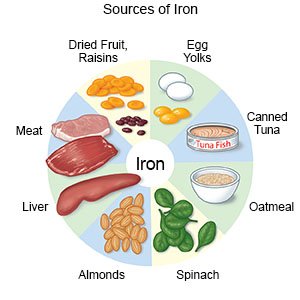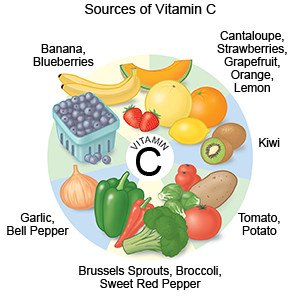Anemia
Medically reviewed by Drugs.com. Last updated on May 6, 2024.
What is anemia?
Anemia is a low number of red blood cells or a low amount of hemoglobin in your red blood cells. Hemoglobin is a protein that helps carry oxygen throughout your body. Red blood cells use iron to create hemoglobin. Anemia may develop if your body does not have enough iron. It may also develop if your body does not make enough red blood cells or they die faster than your body can make them.
What increases my risk for anemia?
- Trauma or surgery that causes massive blood loss
- A gastrointestinal bleed
- A woman's monthly period
- A family history of blood disease or anemia
- Liver or kidney disease, cancer, rheumatoid arthritis, or hyperthyroidism
- Alcohol abuse
- Lack of foods that contain iron, folic acid, or vitamin B12
What are the signs and symptoms of anemia?
- Chest pain or a fast heartbeat
- Lightheadedness, dizziness, or shortness of breath
- Cold or pale skin
- Tiredness, weakness, or confusion
How is anemia diagnosed?
Blood tests will show if you have anemia.
How is anemia treated?
Treatment depends on the type of anemia you have. You may need any of the following:
- Iron or folic acid supplements help increase your red blood cell and hemoglobin levels.
- Vitamin B12 injections may help boost your red blood cell count and decrease your symptoms.
- A blood transfusion may be needed if your body cannot replace the blood you have lost.
- Surgery may be needed to stop bleeding, or if your anemia is severe.
Treatment options
The following list of medications are related to or used in the treatment of this condition.
How can I prevent anemia?
Eat healthy foods rich in iron and vitamin C. Nuts, meat, dark leafy green vegetables, and beans are high in iron and protein. Vitamin C helps your body absorb iron. Foods rich in vitamin C include oranges and other citrus fruits. Ask your healthcare provider for a list of other foods that are high in iron or vitamin C. Ask if you need to be on a special diet.
 |
 |
Call your local emergency number (911 in the US), or have someone call if:
- You lose consciousness.
- You have severe chest pain.
When should I seek immediate care?
- You have dark or bloody bowel movements.
When should I call my doctor?
- Your symptoms are worse, even after treatment.
- You have questions or concerns about your condition or care.
Care Agreement
You have the right to help plan your care. Learn about your health condition and how it may be treated. Discuss treatment options with your healthcare providers to decide what care you want to receive. You always have the right to refuse treatment. The above information is an educational aid only. It is not intended as medical advice for individual conditions or treatments. Talk to your doctor, nurse or pharmacist before following any medical regimen to see if it is safe and effective for you.© Copyright Merative 2024 Information is for End User's use only and may not be sold, redistributed or otherwise used for commercial purposes.
Learn more about Anemia
Treatment options
- Medications for Anemia
- Medications for Anemia Associated with Iron Deficiency
- Medications for Anemia Associated with Vitamin B12 Deficiency
- Medications for Anemia Due to Chronic Kidney Disease
- Medications for Anemia of Unspecified Nutritional Deficiency
- Medications for Anemia, Chemotherapy Induced
- Medications for Anemia, Folate Deficiency
Care guides
Symptoms and treatments
Medicine.com guides (external)
Further information
Always consult your healthcare provider to ensure the information displayed on this page applies to your personal circumstances.
